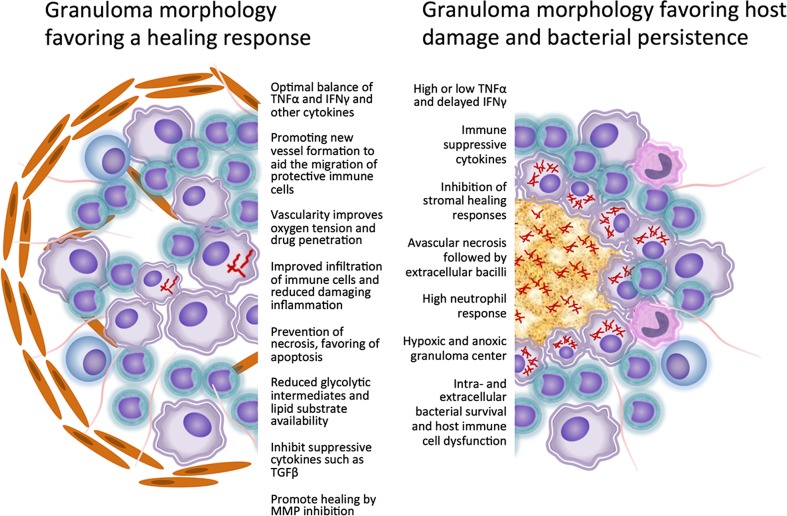Fig. 1.
Granulomatous inflammation in response to M. tuberculosis infection can be protective or destructive. The typical host response to Mtb infection is infiltration of mixed inflammatory cells at the site of primary infection of macrophages in the lung. The inflammatory response is thought to be necessary to effectively kill bacilli or to prevent the spread of infection within or between hosts. The network of cellular and humoral mediators is complex and a balanced response is necessary to favor a protective response rather than a detrimental response that can result in extensive tissue damage, bacterial persistence, and poor antimicrobial treatment responses. Based on our current knowledge, a number of therapeutic targets can be identified to not only promote a more protective response but to also limit tissue damage. These processes can be promoted or inhibited with existing drugs that can be used alone or as adjunctive treatment in combination with antimicrobial drugs

